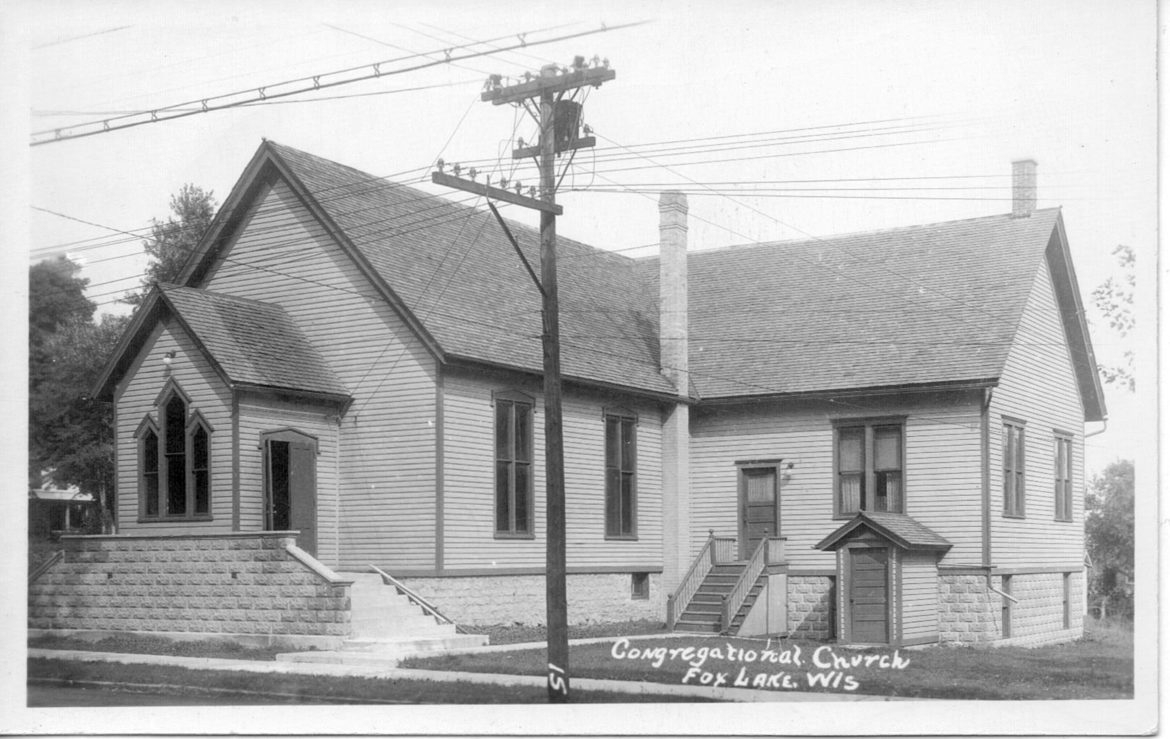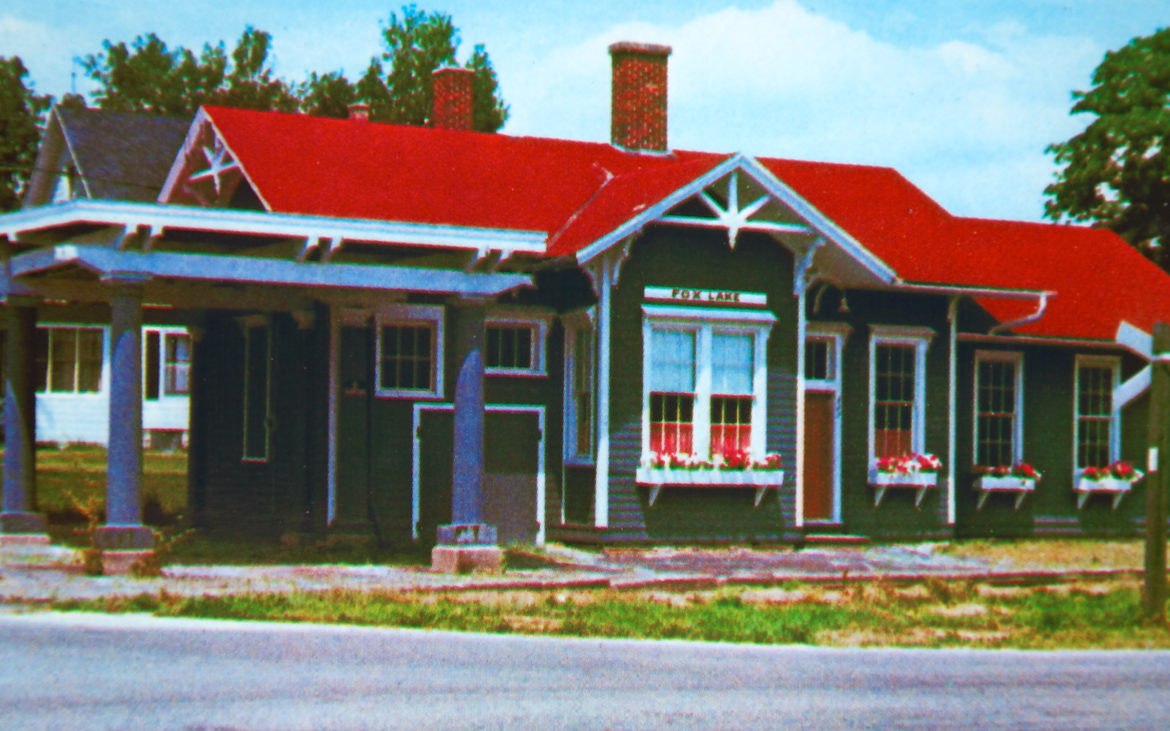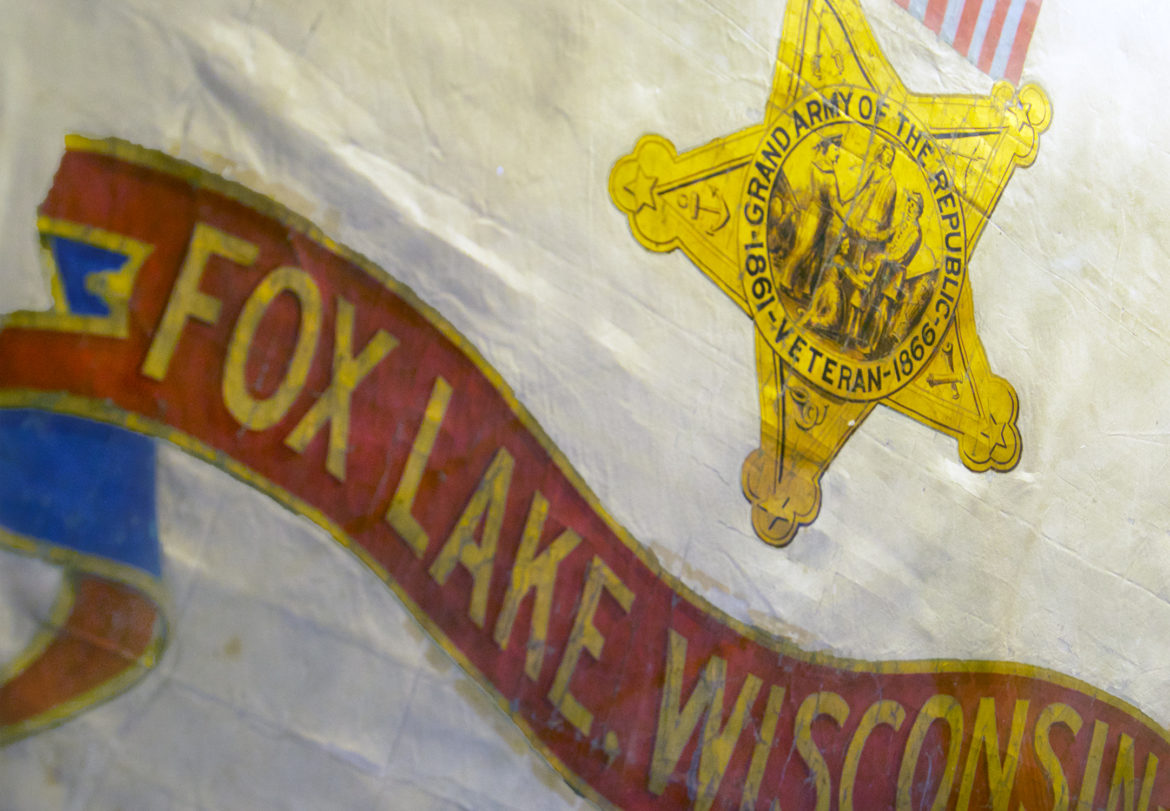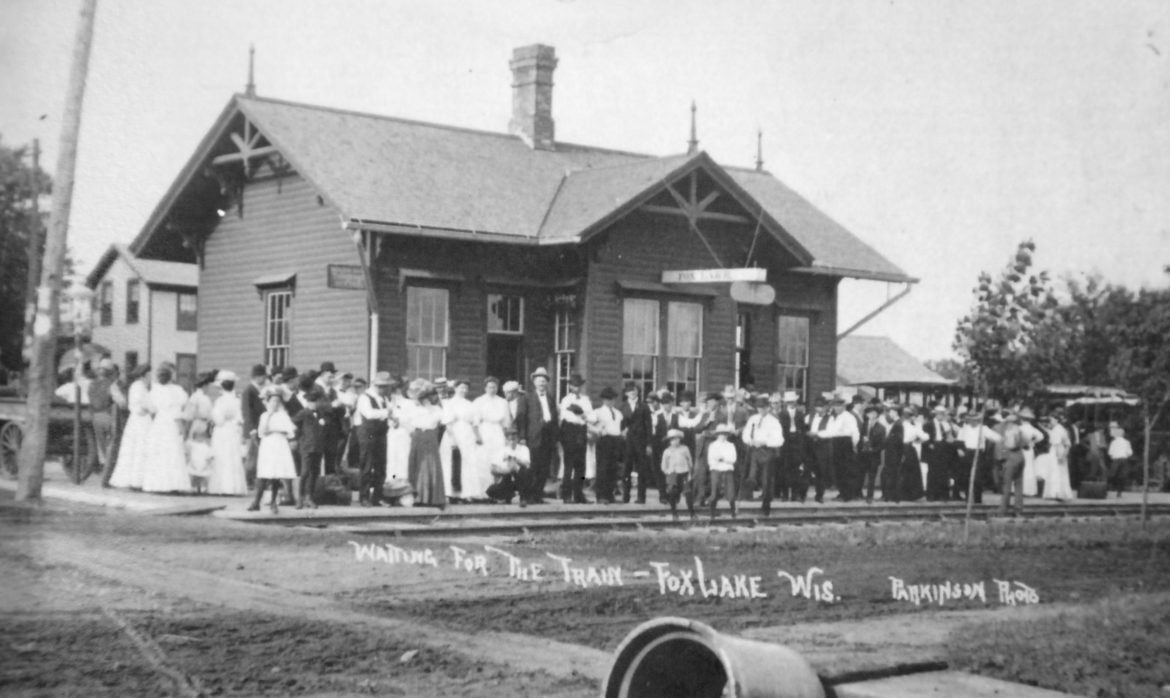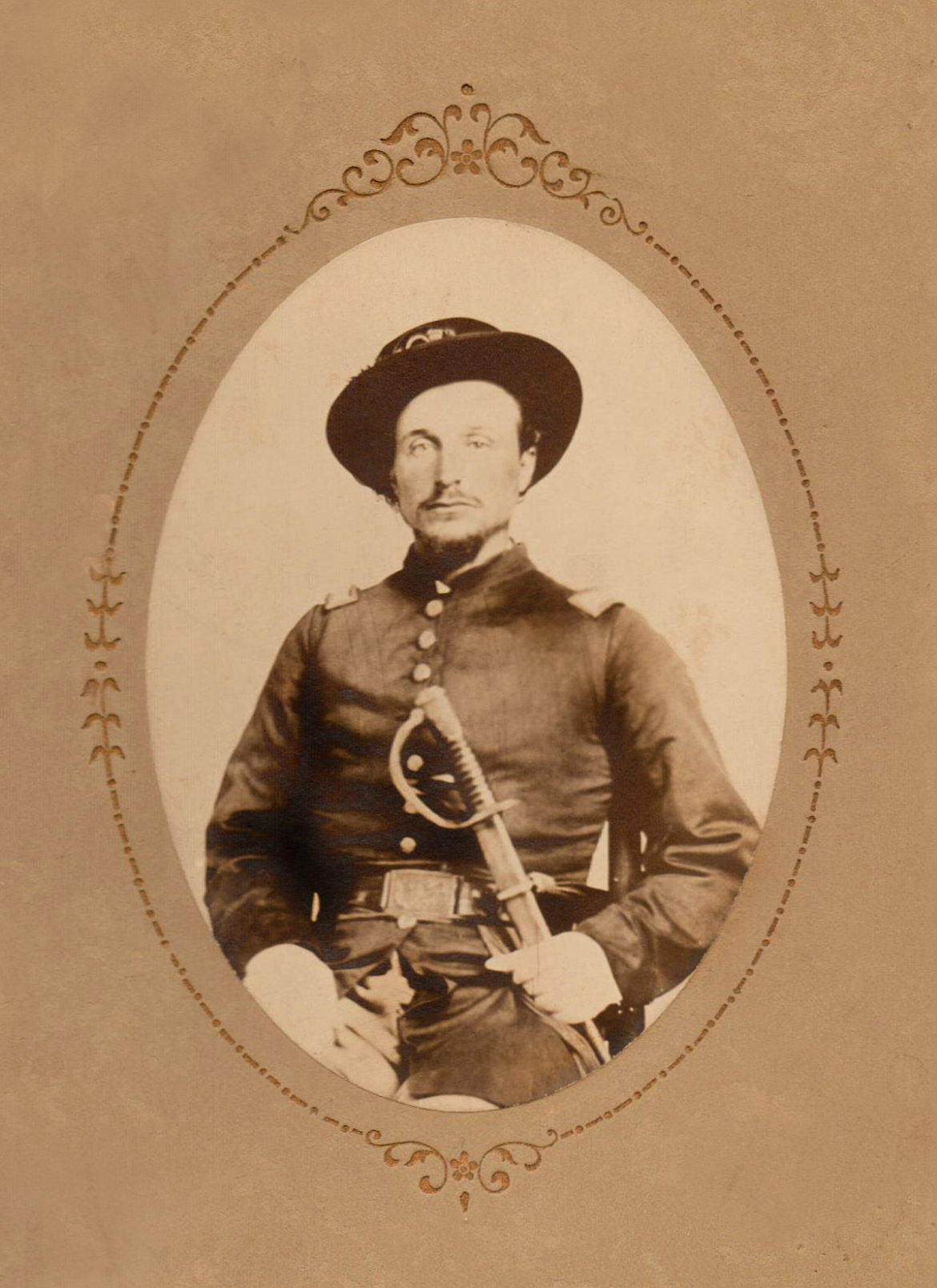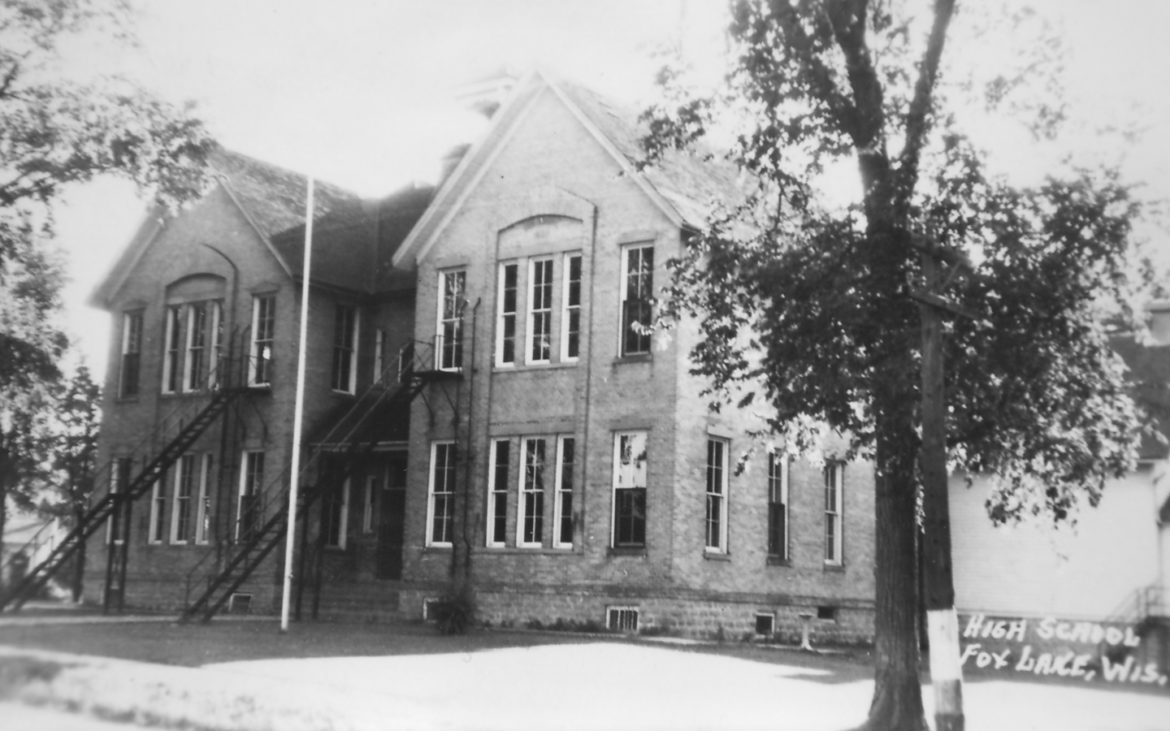By: Robert Frank
In the fall of 2012, the Congregational Church of Fox Lake was closed after 159 years. The members of the congregation decided to donate the building and property to the Fox Lake Historical Society and the City of Fox Lake. The reason for this decision was the history of the church in the Civil War and Fox Lake’s Civil War re-enactors interest in helping to keep the church going as long as possible. In 2003 a 150-year celebration was held with help from the Civil War Re-enactors, but declining membership made it harder to keep going.
Fox Lake’s First Congregational United Church of Christ was organized in 1853, when 7 people met above Mr. Townsend’s store at the northeast corner of College Avenue and State Street. Reverend E. S. Peck was the first pastor and the first communion service was held on December 4, 1853.
As membership grew, a new church was built in 1855. This was their home for the next 157 years. In the 1860s a 16-foot addition was added to the back. This room was connected to the original chancel by a large opening with a counter-weighted door that was raised into the attic to accommodate the overflow crowds of those days. The door is still there and is visible in the kitchen cabinets. In 1917 a fellowship hall was added, and the 16-foot addition was made into a kitchen. A new vestibule was also added. The original church still appears much as when it was first built in 1855.
One of the main tenets of the Congregational Church at that time was the abolitionist movement. In the 1850s and 60s the church was very active in the Underground Railroad. Reverend Peck, the first pastor at Fox Lake, was involved in building several other churches in a line from the Milton House northward. There were many proven and suspected Underground Railroad stops in this area. Jenny Giedd grew up as a member of the Fox Lake church and researched the Underground Railroad in this area. She wrote a book on her findings entitled Wind Along the Water.
During the Civil War, the church became a recruiting station. There were a total of three full companies sent from Fox Lake, as well as 11 of the 100 Wisconsin men to join Berdan’s Sharpshooters and many individual enlistments. These men were, of course, not all from Fox Lake as this was an area recruiting station. A local storekeeper, George H. Stevens, organized one of the companies as the Fox Lake Citizen’s Guard. When President Lincoln called for volunteers, they were one of the first to go in. They were mustered in as Company A 1st Wisconsin Volunteer Infantry. After training at Camp Randall in Madison, they became part of the Army of the Potomac. Along with two other Wisconsin regiments and one from Indiana, they became the famous Iron Brigade. In the opening volley the first day of the Battle of Gettysburg, Captain George Stevens was killed. Just a short stone toss away from him, Lucius Fairchild, future governor of Wisconsin, lost his arm. George Stevens was buried at Gettysburg, and his wife Harriet is buried in Riverside Cemetery here. After the war, Fox Lake veterans organized George H. Stevens Post 100 of the Grand Army of the Republic. Harriet Stevens presented a beautiful silk banner to them. This banner has been lovingly restored by Fox Lake’s Company A 1st Wisconsin Volunteer Infantry re-enactors and the American Legion Post. It is now on display at American Legion Post 521.
Another company from Fox Lake was Company D 8th Wisconsin Volunteer Infantry commanded by W J Dawes, a local lawyer. They were part of the Eagle Regiment with Old Abe the war Eagle as their mascot. The third company was Co E 29th Wisconsin Volunteer Infantry. Captain Hezekiah Dunham, a local hotel owner, was commander. Many years later in the 1920s when Mr. Dunham’s old hotel was torn down, a hidden room was found. This was probably used as a stop on the Underground Railroad. Both Mr. Dunham and George Stevens were members of the Congregational Church.
Samuel McDowell was a teacher at the old Fox Lake Academy who enlisted and was involved in many engagements of the Civil War including the Siege of Vicksburg. He brought home many artifacts and souvenirs, and when he passed away many years later, his daughter donated them to the Fox Lake Public Library; after all these years, we will finally have a place to display them – a Civil War museum in the donated Congregational Church building to be renamed the Community Congregational Museum.
A grand opening of the Community Congregational Museum is planned in conjunction with the celebration of Fox Lake’s 175th birthday on June 15, 2013. The Fox Lake Historical Society also operates the 1884 Milwaukee Road Railroad Depot. Just a few blocks away from the church/museum, the depot site includes a small shed with railroad artifacts, an early farm kitchen, a working blacksmith shop and one of our earliest filling stations. Come visit us!
